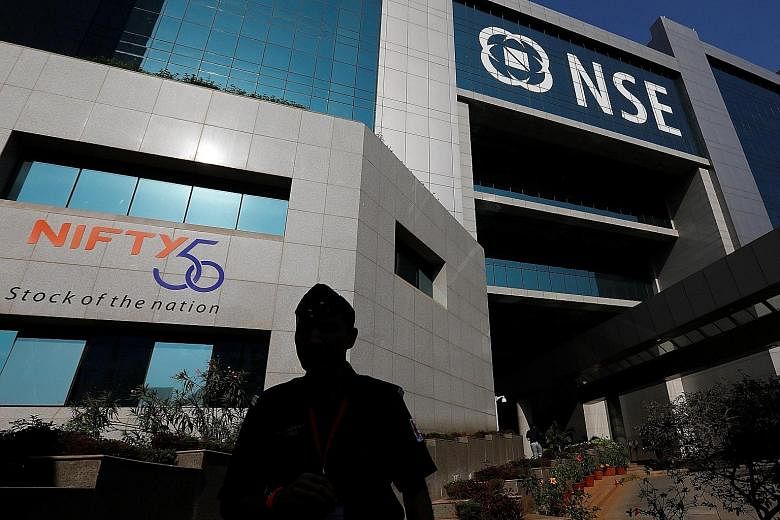India's national stock exchanges will stop providing data feeds to foreign rivals and eventually halt the trading of offshore derivatives tied to India's benchmark indices like the Nifty 50, as part of a concerted move to protect their turf and prevent trading volumes from moving overseas.
The shocking news is expected to deal a blow to about 10 exchanges from Chicago to Dubai where Indian derivatives are traded, while creating disruptions for index providers like the MSCI.
The Singapore Exchange (SGX), which offers the popular SGX Nifty 50 index futures, was busy soothing outraged market participants over the weekend.
In a statement yesterday, the SGX said the market for its entire India suite of products will open and operate as per normal today.
At the very minimum, it will be business as usual till August, it added.
Under SGX's licence agreement with India's National Stock Exchange (NSE), there is a six-month notice period for termination.
The SGX said it is working with the NSE towards a "viable long-term solution" that would help clients retain existing positions, and hopes to announce details shortly.
This could include developing solutions from NSE's International Exchange in Gujarat International Finance Tec-City, which has been trying to lure global investors.
The curbs would not be applicable to indices trading there.
According to Indian news site Livemint, the Indian exchanges, Securities and Exchange Board of India and Finance Ministry had been discussing possible curbs since last month over concerns that foreign exchanges were becoming price-setters for Indian securities.
About 40 per cent of Nifty futures turnover and as much as 70 per cent of the open interest are on the SGX platform, and the remaining share is with the NSE, Livemint reported.
The threat was exacerbated when the SGX said last month that it would start offering single-stock futures benchmarked to Nifty 50 companies beginning last Monday.
In a joint statement last Friday, the NSE, Bombay Stock Exchange, and Metropolitan Stock Exchange of India said they had observed that "the volumes in derivative trading... have reached large proportions in some of the foreign jurisdictions, resulting in migration of liquidity from India, which is not in the best interest of Indian markets".
It remains to be seen if the new curbs would force overseas investors to buy into domestic derivatives to gain exposure to India, or destroy demand from investors and hurt the NSE's reputation as an index provider.
For example, overseas investors would have to grapple with capital controls.
In India, some of the hurdles to foreign capital include a new 10 per cent tax on capital gains in securities held for more than a year.
Previously, no tax was payable if the holding period was a year or more.
Taxes on securities transactions and equity investments were applicable only if they were held for less than a year.
The SGX does not disclose revenue breakdown by product, but SGX Nifty 50 index futures accounted for 11 per cent of SGX total derivatives volume last month.


